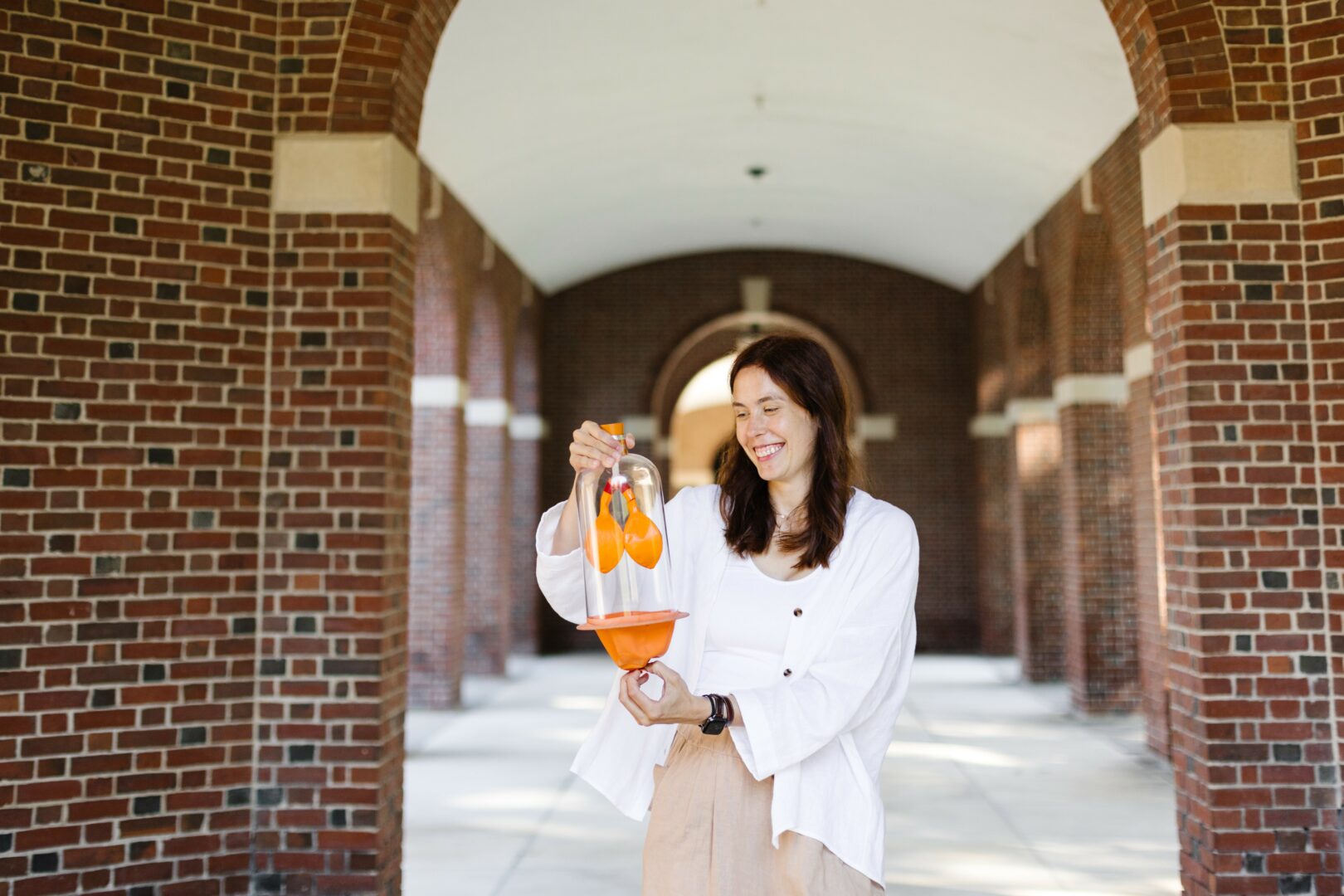We were lucky to catch up with Sarah Hutcherson recently and have shared our conversation below.
Sarah , so great to have you with us and we want to jump right into a really important question. In recent years, it’s become so clear that we’re living through a time where so many folks are lacking self-confidence and self-esteem. So, we’d love to hear about your journey and how you developed your self-confidence and self-esteem.
I used to mistake external validation for confidence.
I received a compliment from my manager = I felt confident.
My friend texted me to say hello and that she missed me = I felt confident.
A coworker asked me to join their project team = I felt confident.
I believed I had it or I didn’t, but the funny part about it was that how I defined confidence was based on external indicators rather than the habit of cultivating it. A significant shift for me into viewing confidence as a habit was when I chose to leave a dream sustainability job to focus on healing my body post-Covid. I remember the weight on my chest, the angst, and the internal constriction as I put my resignation in – saying no, especially for myself, was confounding. But that decision, made up of small moments of choosing myself months before leaving the job, showed me that developing confidence is about growing roots from within and acting whether or not anyone else is cheering me on.
I continue nourishing confidence daily by celebrating my being-ness alongside my doing-ness. Through gentle breathwork during my days, writing without an agenda, nervous system regulation, and talk therapy, I’ve understood that confidence is a sweet skill to continue to live into rather than a static trait to claim on a personality profile.
Another powerful daily habit that boosts my self-confidence is really taking in and looking at the plants, trees, and animals on my walks with my pup as I bring attention to my breaths. The combination of breath and nature is powerful to me, which is why I facilitate breath walks.
I recently learned about an amazing thing, the mirror neuron system, from Sarah Baldwin, a Somatic Experiencing Practitioner. As neuroscience is ever-evolving, the current understanding of mirror neurons, found in multiple parts of the brain, is that they process the perception of objects and awareness of your body in space, meaning they can be great conductors of learning and empathy.
I now understand why when I look at a giant pine, let’s say, or a tall, blooming sunflower, as I slow down my breaths, I notice my posture shift, my spine elongate, and my breaths move into the abdominal region of the body, which is associated with more rest-and-digest activity of the nervous system. It is in this shift that I am reminded that quiet confidence is not earned but omnipresent. It’s about slowing down enough to remember and practice confidence.
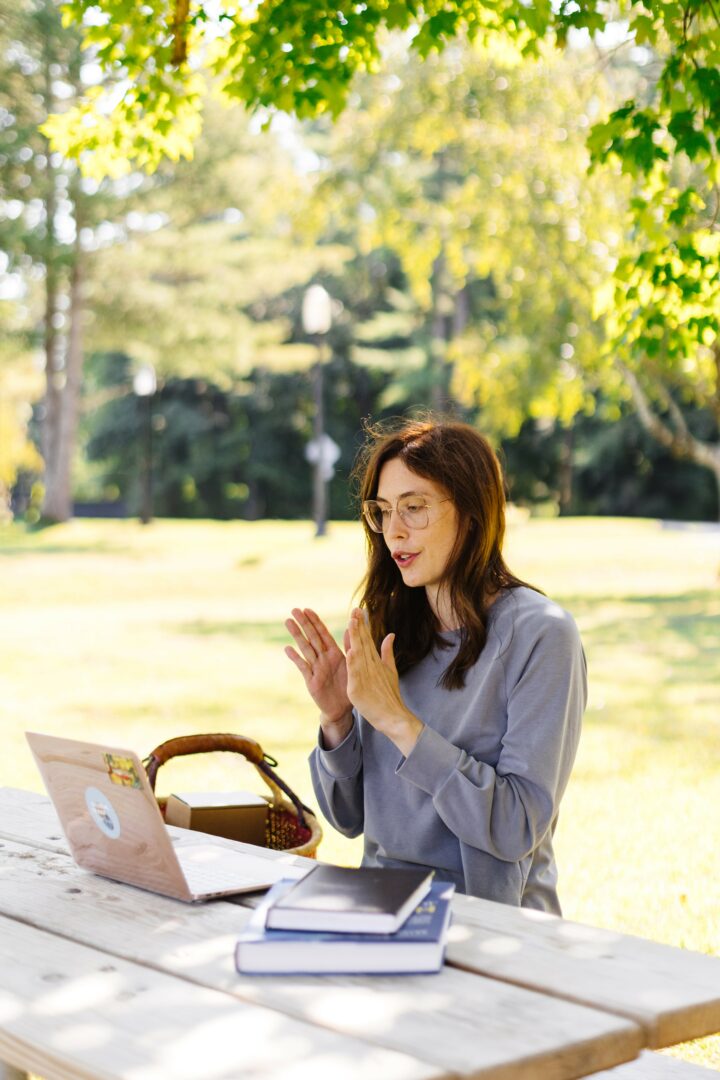
Let’s take a small detour – maybe you can share a bit about yourself before we dive back into some of the other questions we had for you?
I am a breath coach and the owner of Slo Breathworks. I aim to define and nourish breathing cultures in organizational and physical bodies. What this means is creating environments where the act of consciously breathing is integrated into the everyday – whether it is a few slow breaths before a Zoom meeting, while pouring your coffee, or after a lunch.
I love how simple yet profound the breath is and its interconnectedness. Every breath is a connection with the respiratory diaphragm, which is connected to a handful of organs and nerves responsible for the automatic processes in the body. Being able to consciously control the breath cycle, which is otherwise automatic and the fuel of all our doing and being, is powerful. It is a gift to educate and show people how to harness slow breaths to slow down, remember who they are, and integrate conscious breaths into their routines. I do this through workshops, 1:1 containers, and online breath breaks.
I am thrilled to share that Slo Breathworks is launching breathing roundtables in 2025. They are monthly virtual connects to bring together helping professionals to discuss how to integrate conscious breaths into their systems, services, and their daily routines to boost their and their clients’ mental and physical health. The goal for these roundtables is to define and bring to life a living definition of breathing cultures in therapists’ offices, teachers’ classrooms, and coaches’ curriculums.
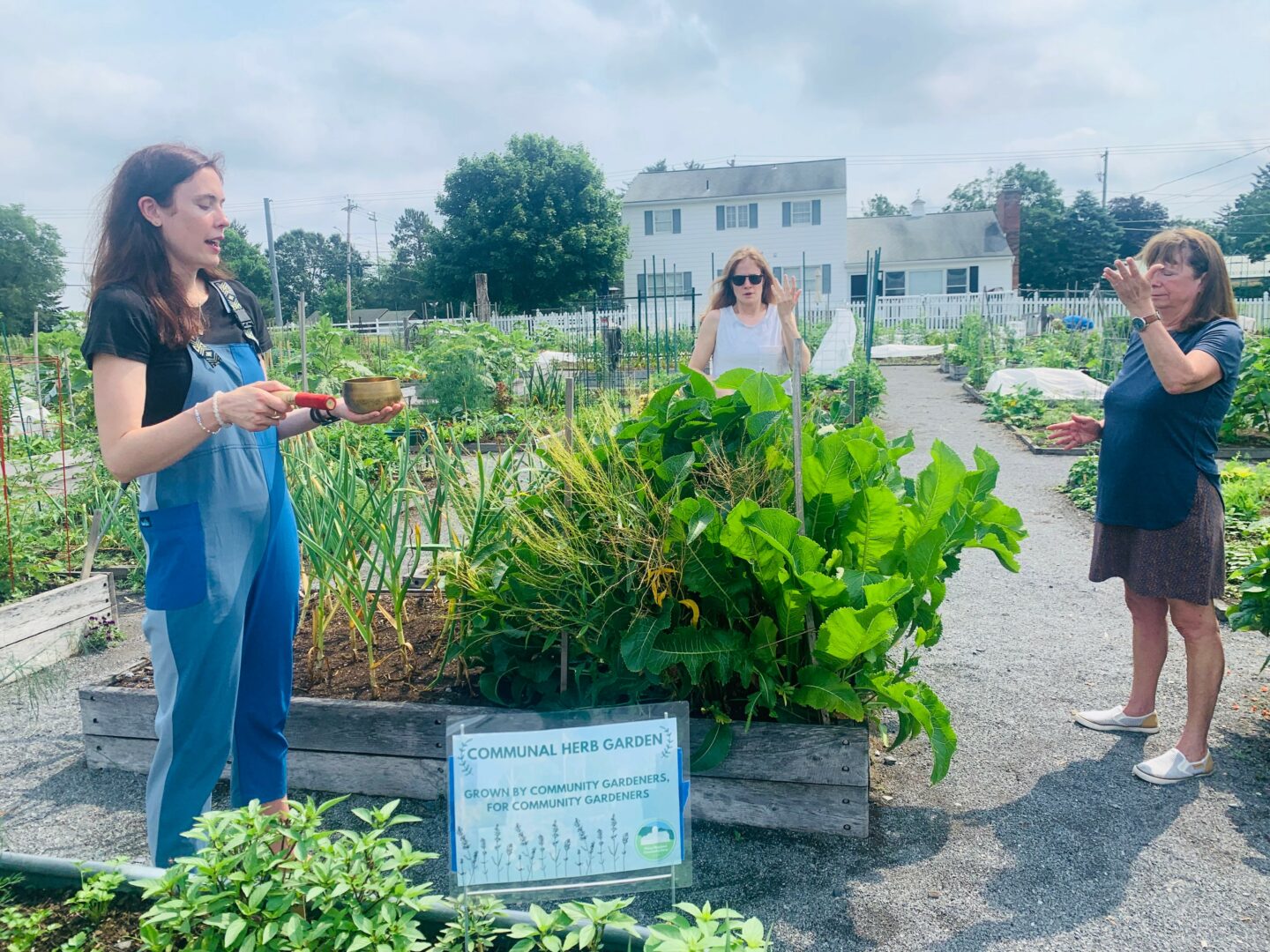
If you had to pick three qualities that are most important to develop, which three would you say matter most?
Infusing self-compassion into my day:
As a breath coach, I do love some good self-help and collective care. The programs, the trainings, the books, the podcasts. All of these have helped me get to where I am now, no doubt. But infusing the actions of life, work, and learning with compassion and loving-kindness have grown my capacity to enjoy the ebbs-and-flows of the journey.
Deciding and leading with trust:
If you haven’t read adrienne maree brown’s work, Emergent Strategy, take a slow breath and go listen or read it right now. The book has been a reference for how I’ve moved forward after Long Covid, divorce, and burnout. There is a line in it, that I’ve noted and highlighted each time I’ve read it, “Trust the wisdom of the body and the collective.”
I can easily fall into the me, me mentality, leading to more doubt, but as each breath keeps on reminding me – all parts of the breath are essential – the inhale, inhale hold, exhale, and exhale hold–to nourish the body on the physiological level. If I am only focused on the inhale, I am not removing toxins from the body and most likely overbreathing leading to too much oxygen in the body. The practice of deciding to lead and be with trust is similar – it is when I consider the collective and listen to my body’s cues (aka the breath) that I have felt most inspired by my journey.
Building the breath into my life:
The active practice of building five, ten, and fifteen minutes of conscious breathwork into my day has been a bridge to more self-awareness, emotional regulation, and calm confidence. My mindful breathing practice has entailed extending the exhale for five breaths before I hop in the car to a meeting or practicing the physiological sigh while walking around the block. I keep learning it doesn’t have to be fancy or look a certain way. It only has to be consistent throughout the day.
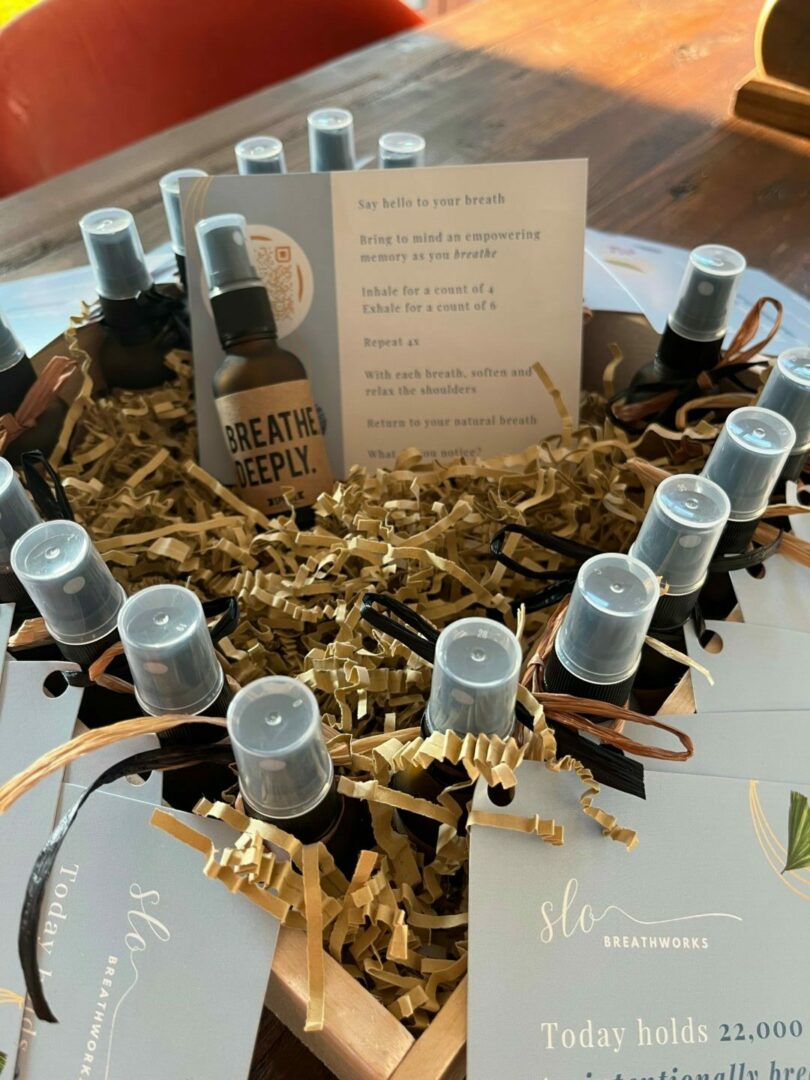
Who is your ideal client or what sort of characteristics would make someone an ideal client for you?
The beautiful part about mindful breathing is that most people can access the practice anytime, day, and night. We each breathe about 22,000 times a day. Still, you only need to mindfully breathe about 200 of these to experience the physiological and energetic shifts within the body in one or two months.
That’s why I’ve been weary of defining the ideal client for Slo Breathworks during the first two years in business. But then, after a 1:1 I facilitated last month, I zipped out of the Zoom and had a beautiful lightbulb moment where I knew that the ideal client is someone whose career centers around expanding others’ health and wellness.
Professionals and organizations curious about bringing conscious breathing into their practices make brilliant clients, especially those serving and empowering others’ well-being. Because, as the breath cycle teaches us, if we are over-exhaling, aka over-giving, especially over time, we lose our ability to tolerate carbon dioxide, aka relaxed resilience.
In reality, most humans can benefit and grow from a mindful breathing practice since breath is a cornerstone to living. Still, because of my lived experience and background in non-profits and sustainability, I am elated to train helpers – the therapists, coaches, and those enneagram twos out there – to build breathing cultures for themselves and their organizations and those they serve.
Contact Info:
- Website: https://www.slobreathworks.com/
- Instagram: https://www.instagram.com/slobreathworks/
- Linkedin: https://www.linkedin.com/in/sarahhutcherson/
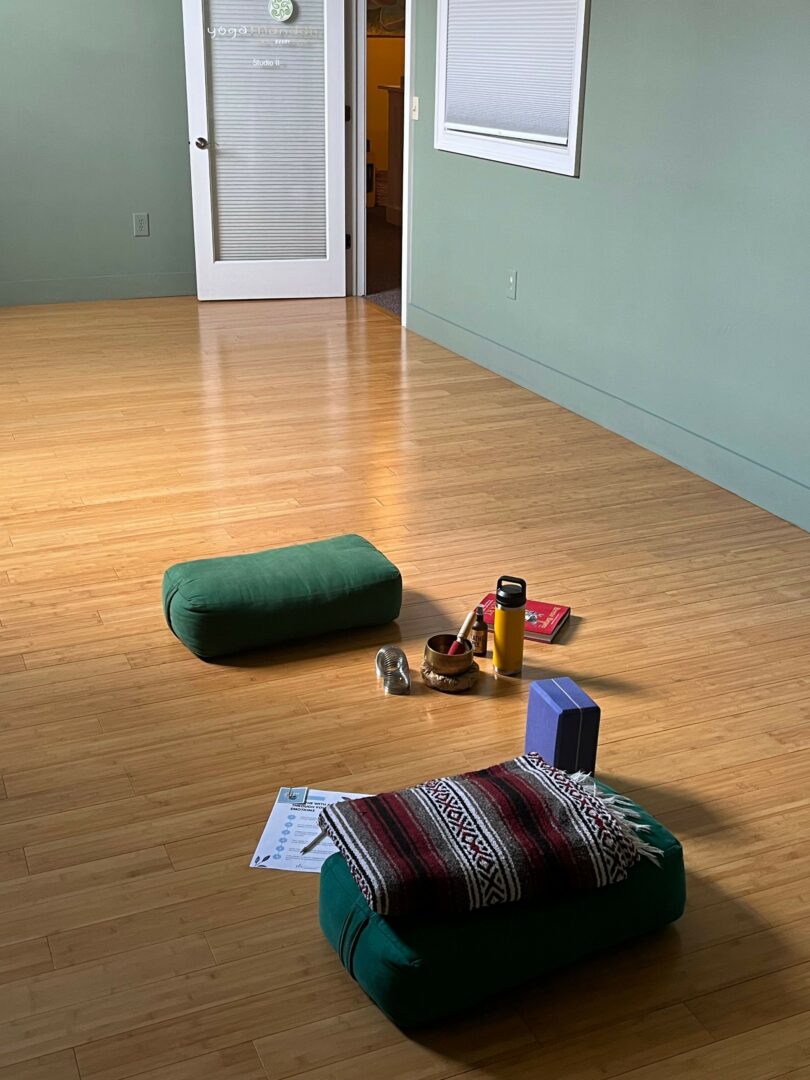
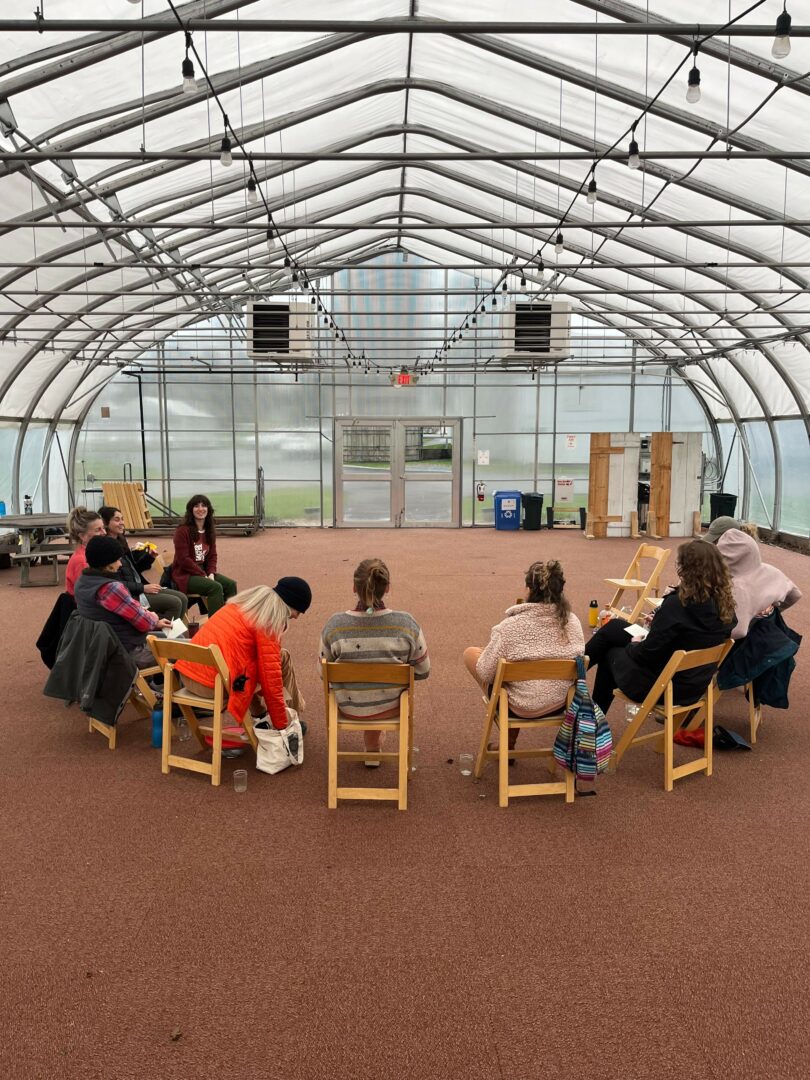
Image Credits
Erin Fortin Photography
so if you or someone you know deserves recognition please let us know here.

